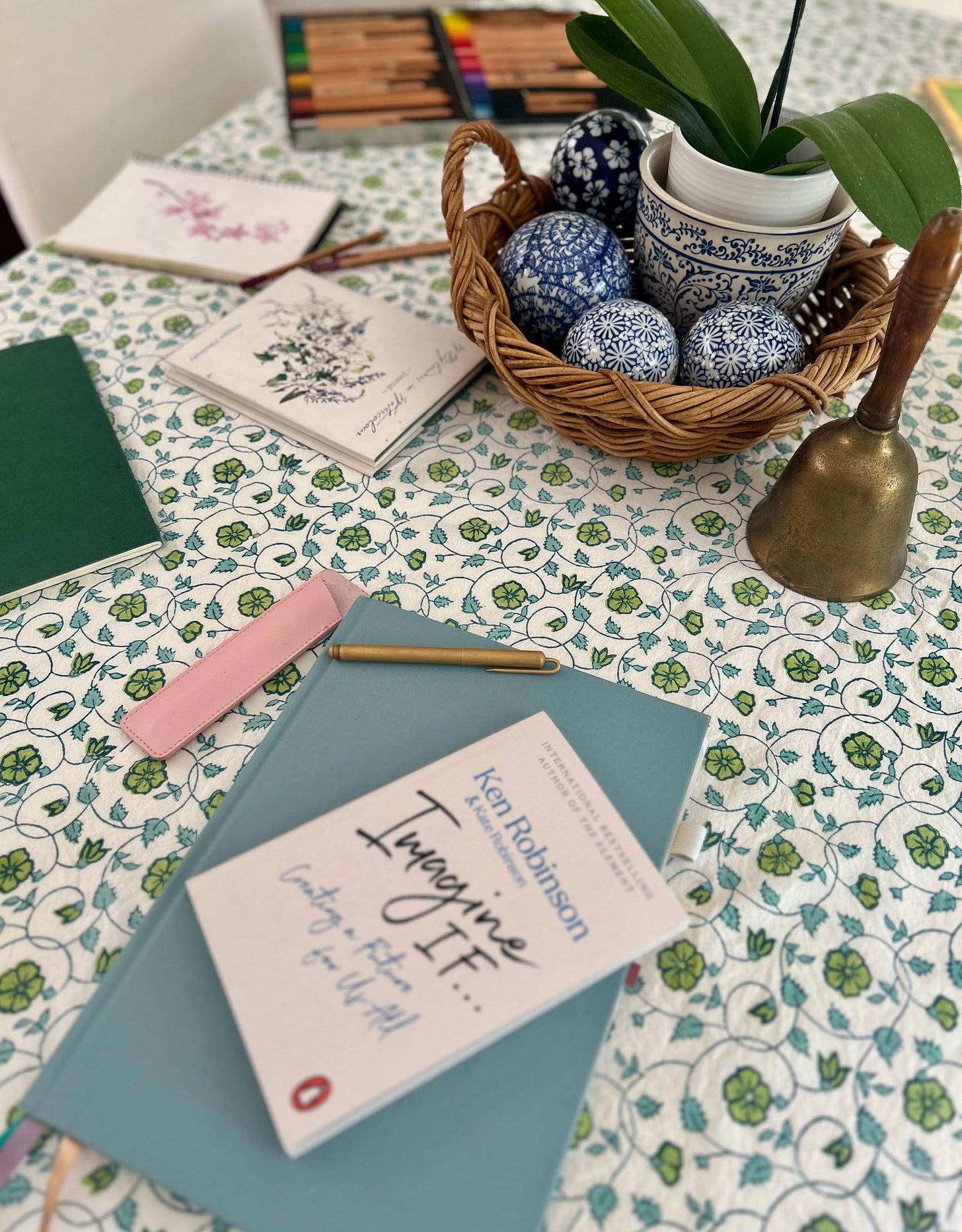There can be many curiosities about homeschoolers and their approach to education. There are a lot of questions people want to ask those of us who choose to home educate:
· Are you a qualified teacher?
· How will they get into uni?
· Do you follow school terms?
· How do you teach High School Maths?
· Do you have a classroom in your house?
· Do your children have friends?
· How are they socialised?
· Do your children ever get homework, or is all their work homework?
· Do your children wear a uniform?
Given most students are educated at school, people want to understand what homeschooling can look like. How it actually works day to day.
I’ve lost count of the number of families I’ve welcomed into our home to join in our morning of homeschool lessons to see how we do it, giving them a glimpse into our everyday. We all gather around our cosy table (most often with a pot of tea and piles of books) and they join in with our homeschool day. Seeing how it can be done helps to answer the many questions but inevitably prompts more questions. There is no one right way to home school, so seeing how another family does it helps us to think about how we might do things differently to make it work for our own family.
For the last couple of years I have served as on the NESA Home Schooling Consultative Group. This is a volunteer role. I offer a homeschooler’s voice in the realm of government regulation and initiatives around education. Before motherhood I worked in the public service for a decade, so in some ways it feels very familiar to be in this space, except this time I’m sitting on the other side of the table, as it were. In this role I meet some talented individuals who are dedicated to improving education in our country and people who are interested in learning more about home schooling. I also find myself answering questions about how home education.
No, you don’t need to be a qualified teacher to homeschool, but many teachers do choose to homeschol instead.
Yes, many homeschooled students do go onto university. My eldest son is studying Biotechnology at the Australian National University, despite many people telling me that it would be impossible for him to gain entry.
Some homeschoolers follow school terms. Others don’t.
We all approach teaching High School maths in different ways.
Often lessons are enjoyed at the dining table, but some families have a dedicated homeschool space.
Our children do have friends and have a range of social opportunities.
Some do homework, others don’t; just as some may choose to wear a type of uniform. (We don’t.)
The beauty of homeschooling is that it can be shaped to suit the needs, dreams, and quirks of your family. You can decide what will work best for you. After all, you know what your challenges are and why you are considering homeschooling in the first place.
If you are curious about educating at home, then why not dip into the Australian Homeschool Stories podcast? This gives you a glimpse into the lives of Australian homeschoolers. There are many different ways you can approach home education and this podcast shares a range of stories. I was pleased to chat with Stephanie last year and share a snippet of our homeschooling journey. You can listen to it here.
As always, I’m happy to share how we home educate and answer your questions, even if I can’t welcome you to our table with tea and books. So, if there is something you want to know about homeschooling please get in touch!




